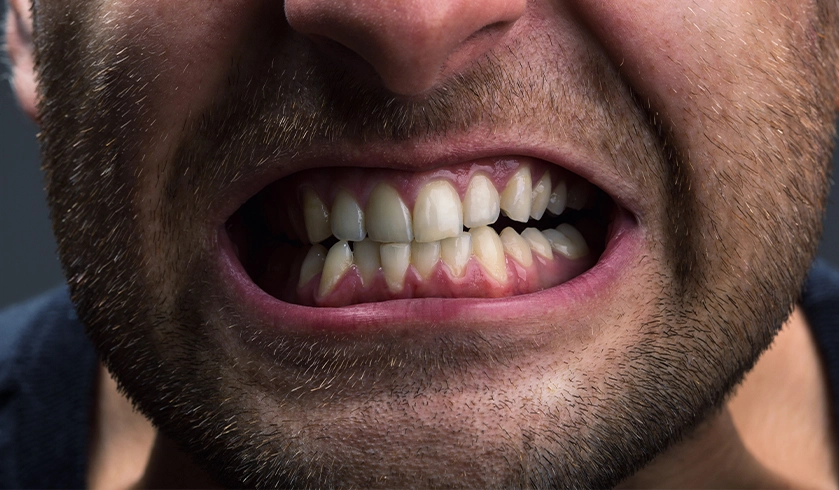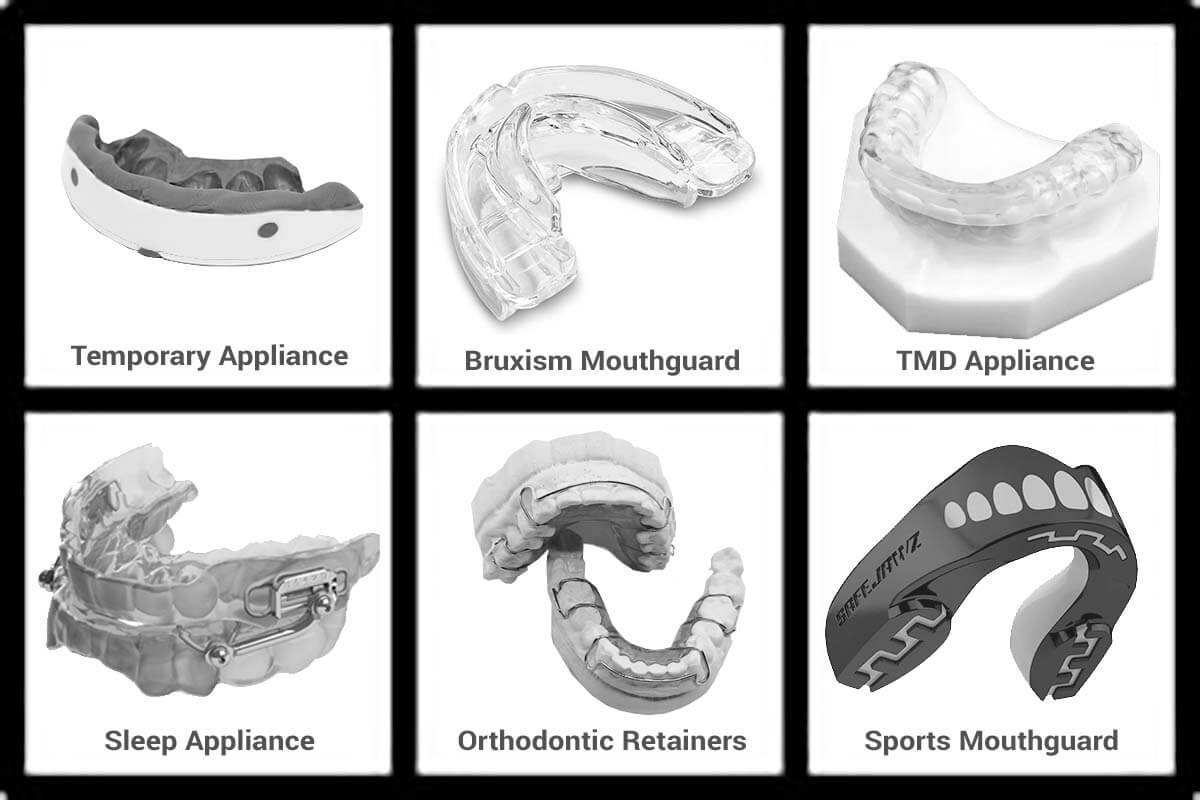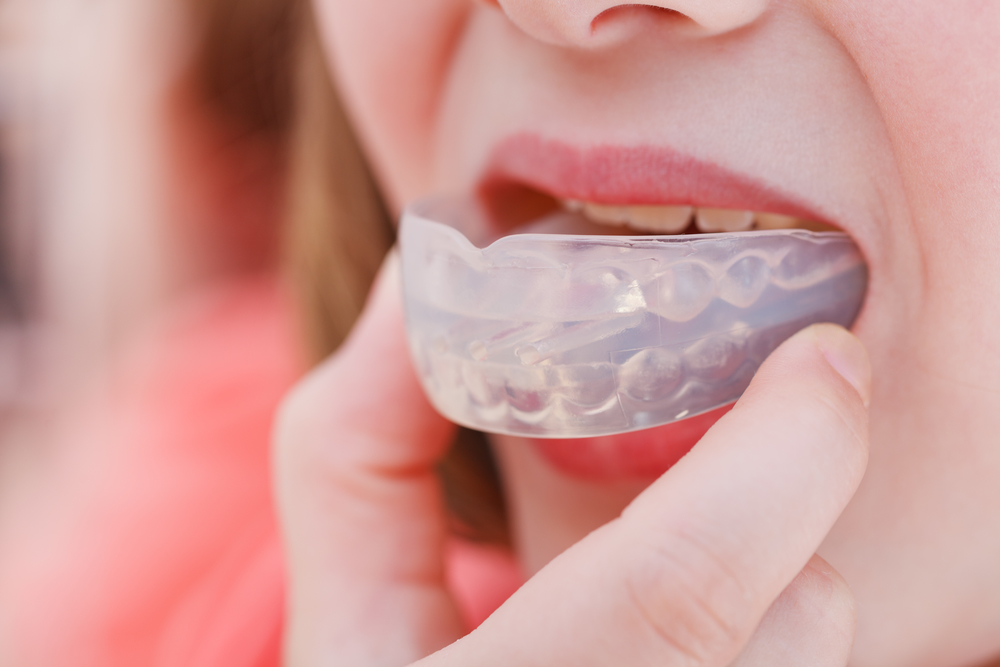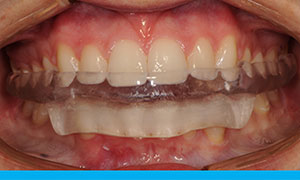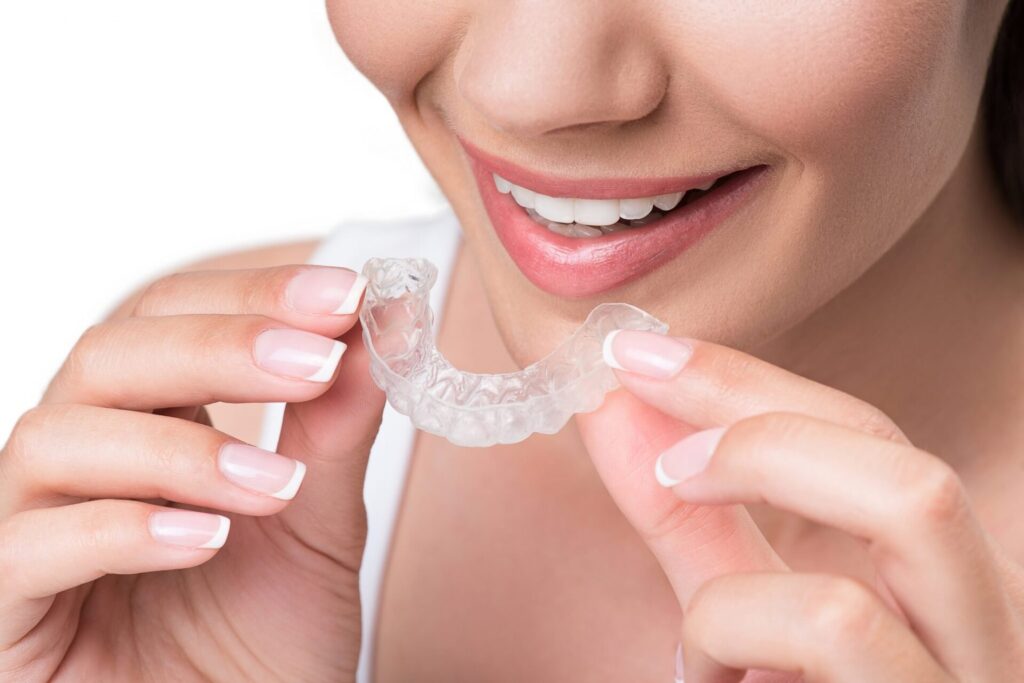
Difference Between A Night Guard and A Splint
Introduction
Temporomandibular disorder can affect everyone and if you are unclear, if you need a night guard or TMJ splint, the best dentist in Delhi will examine you thoroughly and explain your options. A night guard and a TMJ splint are two dental devices designed to meet the diverse needs of patients with TMJ.
Both splints and night guards are used to prevent teeth grinding, yet they have different functions.
A TMJ splint is customized for each patient and helps to stabilize the jaw, whereas a night guard just protects the teeth from grinding. If you are suffering symptoms of grinding your teeth, you should contact the best dental clinic in Delhi to establish which sort of protection is appropriate.
Night Guard
Night guards are custom-fitted oral appliances to wear while you sleep. The team at ‘Smile Delhi – The Dental Clinic’ recommend them to treat a variety of conditions, like bruxism (clenching or grinding) and apnoea. Treatment for apnoea is the best option when grinding due to apnoea. Night guards are best used for clenching, which is a central nervous system-mediated response to stress. However, some people grind because they have a bite discrepancy and the jaws are trying to get the teeth to fit together comfortably. The habit of grinding or clenching your teeth can wear down the enamel and cause long-term dental issues.
Symptoms of Bruxism
Because tooth grinding typically occurs while sleeping, some people don’t even realize they’re doing it, especially if they only have a mild form of the condition. If you suspect you might have bruxism, here are some common symptoms to look for:
- Audible teeth grinding or clenching at night, which may be loud enough for the people around you to notice
- Waking up with headaches, earaches, toothaches or facial pain
- Sore or tight jaw muscles
- Disrupted sleep
- Increased tooth pain or sensitivity to changes in temperature and pressure
At your appointment at ‘Smile Delhi – The Dental Clinic’ we can detect additional signs of tooth grinding or clenching. These may include:
- Unusual wear spots on the teeth
- Flattened, fractured, chipped, cracked, or loose teeth
- Damaged tooth restorations
- Damage to the temporomandibular joints
It’s always wise to get a night guard custom made from the best dental clinics in India, that is designed to fit your teeth properly.
Night guards are often exclusively worn on the upper or lower teeth. Ninety percent of patients pick the upper night guard because it is often more comfortable and the tongue doesn’t interfere. However, some patients choose the lower night guard if they have had dental work performed on their upper teeth. The three most common varieties of night guards are soft night guards, hybrid night guards and hard night guards.
Soft Night Guard
A soft night guard is made from a rubber-like, malleable material. This type of sleep guard decreases symptoms of teeth grinding by creating a soft barrier between the teeth. Typically, it is recommended for those with mild bruxism.
Hybrid Night Guard
The interior of a hybrid night guard is made of soft rubber material, while the exterior is made of hard acrylic material. This also functions as a barrier between the teeth, but it is more pleasant on the inside and creates a strong barrier on the bite surface. People who grind moderately or heavily are advised to wear this night guard during the night.
Hard Night Guard
Acrylic is used for the inner and exterior of a hard night guard. Acrylic material is frequently recommended for the heaviest grinders due to its remarkable durability.
Splints
A splint is also known as a dental splint, an occlusal splint, a bite splint, a bite guard, an occlusal appliance or a dental appliance.
Each of these splints treats temporomandibular joints in a distinct way. In general, splints for TMJ allow your jaw muscles to relax, distribute pressure evenly across your teeth, ease tension on your joints and help realign your jaw. Dentists can often determine your issue by examining the splint’s wear.
Available in both permissive and nonpermissive types, occlusal or TMJ splints alleviate jaw pain caused by TMJ disorders.
Types of TMJ Splints
Since there are different ways to treat TMJ disorder, there are varying types of TMJ splints that can be used during splint therapy. These splints break down into a couple of categories depending on their purpose, including:
- Permissive: This type of splint stabilizes your mouth to keep your teeth in the correct position when your jaw is closed. Permissive splints allow the jaw and teeth to move freely, but deliver support that helps maintain a proper resting point. These splints are used most commonly among patients.
- Non-permissive: This type of splint is more restrictive, with ramps or indentations that direct the movement of your jaw. The goal of non permissive splints is to reposition your teeth and jaw into a more comfortable position that will prevent further pain. These splints are typically required to be worn throughout the day to keep your jaw constantly aligned.
TMJ disorder stems from pain in your jaw muscles that are the result of uncomfortable positioning that puts them under strain. To fix this issue the dentist near you, will affix you with a splint, otherwise known as a mouth guard or mouthpiece, which will help reduce this tension. These splints are made from soft or hard plastic and can cover all of your teeth or just a certain area that is causing you pain. Splint therapy can last anywhere between a couple of weeks to a few months, depending on the specific issue that is being corrected. After the designated period of time has concluded, you will be evaluated to see if the splint has successfully relaxed your jaw muscles, or if another step needs to be taken.
Stabilization Splint
Stabilization splints, also known as permissive splints, are designed to avoid harmful contact between teeth and provide a bite surface that is compatible with the jaw joints. This alleviates pain by allowing the jaw muscles to relax.
Repositioning Splint
True to their name, repositioning splints attempt to realign the jaw to its ideal position. Your teeth will not slide across the biting plane because of the indentations on these devices.
NTI-tss (Nociceptive Trigeminal Inhibition Tension Suppression System) Device
An NTI-tss device is worn exclusively on the top front teeth to reduce clenching and grinding. This type of NTI dental appliance is notably beneficial for reducing migraines and headaches associated with facial pain. Due to the fact that it only fits on a few teeth, it places them under great stress, which might be damaging. Due to its microscopic size, there is a risk of ingestion or aspiration if it falls off during the night.
Typically, the best dentists in South Delhi advise patients to use TMJ splints for temporary comfort only. There is concern that prolonged use may affect your bite.
In contrast to nightguards, TMJ splints are typically worn on both the upper and lower jaw. They are meant only for persons with TMD (temporomandibular disorders).
Occlusal TMJ Splint
If you are looking for the most effective night guard for TMJ, then you need an occlusal splint.
Using an occlusal bite splint, you can reposition your lower jaw into a more natural position, allowing your jaw joint and muscles to relax. This TMJ splint releases the muscles gradually.
You will primarily wear it while sleeping. Eventually, the jaw muscles will realign themselves to reduce your pain. On occasion, though, the patient must continue to wear it at night even after the muscles have changed, in order to promote recovery.
This is a device built to order out of acrylic resin that has been processed. Permissive, nonpermissive, hydrostatic and soft rubber splints exist (silicone).
According to a leaflet published by the National Institutes of Health on TMJ, “if a splint is needed, it should be worn for a brief amount of time and should not cause permanent changes in the bite (move the jaw forward/back or cover only certain teeth).” According to the National Institutes of Health brochure on TMJ, if a splint causes or exacerbates pain, you should discontinue its usage and visit the practitioner who fabricated it. You should ask the dentist near you if the splint he or she is constructing for you will affect the position of your bite or jaw.
Difference from Night Guards
The description of TMJ splints may sound similar to a night guard, but there are some key differences between the two. Night guards are intended to keep people from clenching or grinding their teeth at night, which can cause a host of dental issues. A night guard will protect your teeth from coming into contact with each other but does not have the vertical support offered by TMJ splints. Additionally, TMJ splints will position your jaw into an ideal position for resting, while that is not the goal of using a night guard. Patients are also directed to wear TMJ splints during the day, while the grinding that is impeded by a night guard usually only happens when someone is sleeping. If you suffer from teeth grinding or clenching.
Seek Relief from Your Dental Pain
Participating in dental splint therapy will help cease jaw pain caused by strained muscles. Finding out what is causing this pain and which type of splint will be the best in correcting it are important steps that have to be completed before you can start. At ’Smile Delhi,’ our team will consult with you to diagnose the issue and find the right solution to fit your needs. Contact us to schedule an appointment today.
To book an appointment with us at, ‘Smile Delhi – The Dental Clinic’– call us on +91- 9811106871 or whatsapp Dr. Suprriya B Bhatia on +91-9811106377. You can also mail us on [email protected].
“We Care To Make You Smile”
Posted by: Dr Hema



